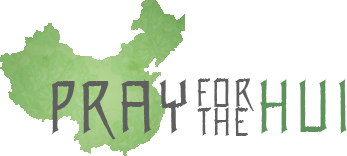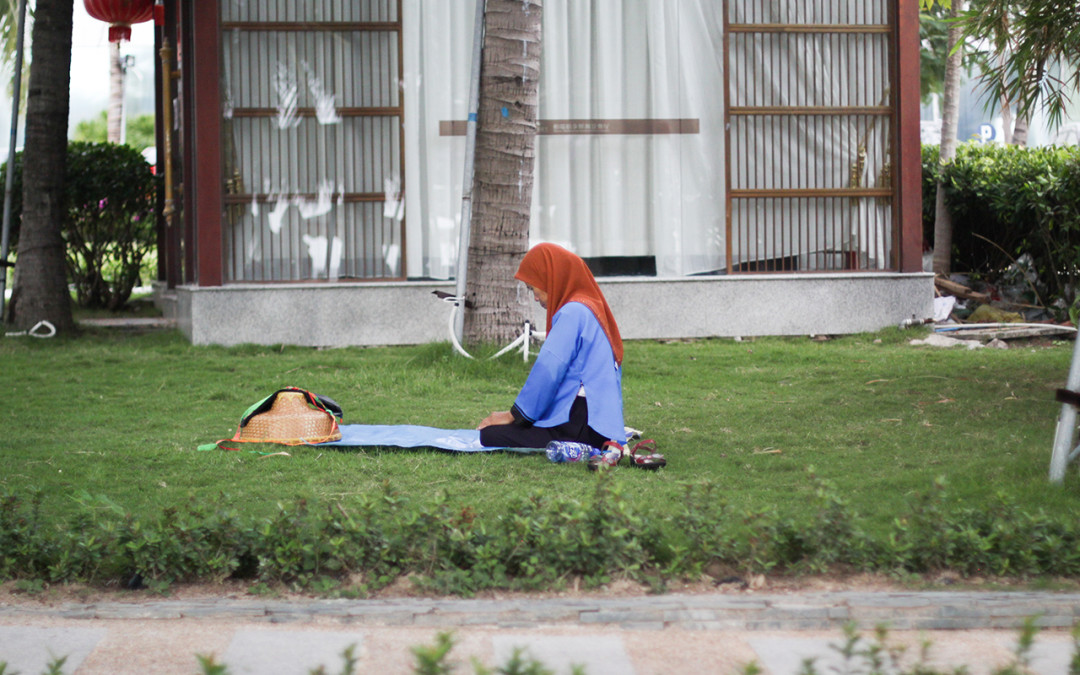Traveling in Southeast Asia, it is easy to find knock off name brands. From shoes and clothing to bags and electronics, look alike products are everywhere. Vendors insist that their products are the same as the real thing as they drive a hard sale. Customers insist that the products are in fact different as they negotiate for a good deal. This back and forth bargaining style and popularity of shopping for knock off goods has made “Same, Same, But Different” a popular slogan. Travelers to Southeast Asia become quickly acquainted with this saying and you can find it on T-shirts just about everywhere. When it comes to shopping for stylish sunglasses and sporty shoes, this slogan is quite humorous. However, when it comes to working among Chinese Muslims, this slogan all too often represents the sad reality of conversations that are had with dear friends and neighbors.
Getting into a conversation about religion with Hui people can be quite simple. Due to their religious culture and lifestyle, getting to the topic of God happens fairly quickly in initial conversations. Their dress (hats or head coverings), holidays (Ramadan and Korban), and eating habits (abstaining from pork) are products of Islam and are great conversations starters that lead to conversations about God. They are happy to share what they believe and their understanding of why they do the things they do. Most people will say that praying five times a day and fasting during Ramadan are the most important things that must be done in order to have sins forgiven. Some will include the other pillars of Islam like taking the Hajj, and giving to the poor are necessary to have sins forgiven. And others mention that any random good deeds that they are currently doing, such as taking care of their parents, are the ticket to finding favor with God. Once they have expressed their understanding of God, or how to get to Him, they are usually pretty open for us to share about what we believe.
It is a pretty exciting moment. Sharing the truth of the Gospel with someone is an exhilarating gift of God’s grace. We get to tell people that God, the holy and perfect Creator of the Universe, loves us! We are not perfect, in fact, our hearts our full of evil, and we are therefore separated from God and deserve to receive His punishment, death. Although we can try really hard to do good things, we will never reach God’s level of holiness or perfection. But because of His love for us, He made a plan to save us from our sins. He sent Jesus to live on Earth to save us from our sins. Jesus was completely perfect and therefore did not deserve to die, however he substituted himself for us and died on the cross. Three days later he rose from the dead! Now, the Bible tells us that anyone who repents of their sin and believes in Jesus will have their sins forgiven and receive eternal life.
Wow! This is seriously great news. It’s not an adequate amount of our good works that saves us, but rather we are saved by God’s sacrificial love!
However, the response of awe and acceptance is not the response that the Hui people give. Oftentimes, after hearing the Gospel, they respond by saying something like, “Oh yeah, what we believe is the same, it’s all the same.” This response frustrates my spirit and breaks my heart, because it is absolutely not true. When they claim it’s the same, that what we believe is the same, I can’t help but to enthusiastically respond, “But it is so very different!”
It is no secret that the Bible and Koran share many stories in common. Adam, Abraham, and Noah are just a few examples of people who are known and respected by Muslims and Christians alike. The belief in a perfect, creator God and the idea of sin and people being sinners are also commonalities. (This is not a post to explain the vast and intricate differences between Islam and Christianity. However, if this is something you are interested in, Nabeel Querishi has a great book called No God But One, Allah or Jesus, that explains these differences in a very clear and readable way.) With Islam and Christianity sharing some of the same prophets and same stories, from a surface level, many things about our religions do look the same. But it is so different. The plan of salvation that they believe in, salvation through works, is immensely different than the plan of salvation that is laid out for us in the Bible: faith alone through grace alone. My hope is that many Hui people will see this difference and respond by putting their faith in Jesus.
Would you pray that the hearts of Hui people who hear the Gospel would be opened to see the difference in what they believe and the truth that has been presented to them? Would you pray that workers who hear the response of, “What we believe is the same” would show grace to the people they are sharing with and have wisdom to share the salvation that comes through Christ alone clearly?

